Binance
Interview with Former Chief Financial Officer of Binance, Now CEO of Coins.ph, Wei Zhou – Blockchain News, Opinion, TV and Jobs
Published
1 year agoon
By
admin
Last year former Binance Chief Financial Officer Wei Zhou bought Coins.ph, a mobile wallet and digital currency exchange, from Indonesian technology company Gojek. Coins.ph, also called the Coinbase of Southeast Asia, was founded in 2014 and was one of the earliest crypto wallets and exchanges in the Philippines. It later shifted its focus to providing broader financial services.
Zhou had previously left Binance for personal reasons. He had worked there for three years.
BCN: How do you feel about governments trying to regulate crypto platforms, which seems to be the trend over the last few years? Do you think there is a real threat of misuse and money laundering practices of unregulated platforms?
Wei Zhou: “I’m all for regulations. The consequences of a lack of regulations can be dire and last year, the crypto industry got a stark reminder of this. FTX is the best example of why we need regulations; being an offshore company, the company wasn’t under the jurisdiction of regulators in most countries it operated in.
At Coins, we have been working with regulators throughout our nine years of existence. We were the first Virtual Asset Service Provider (VASP) to hold both the Virtual Currency and Electronic Money Issuer licenses from BSP. We continue to work with the central bank and other regulators and are constantly audited to protect our users.”
BCN: You posted a YouTube video about trust (In which you talk about the FTX collapse and people losing trust in the man behind the company Sam Bankman-Fried), so I think this subject could be important to you.
Do you think trust is the most important thing in this industry, or are other key factors such as high inflation, rising interest rates and war are more important key factors in the success crypto is expected to have in 2023?
Wei Zhou: “Restoring trust in crypto is critical, but it’s by no means the only factor that will determine the success of crypto this year and in the future. While inflation, interest rates and the political climate will play a big role, I believe that smart regulations will be the biggest factor in restoring trust in crypto.
I’ve been in the Asian crypto market for several years and Philippines regulators adopt a growth mindset when it comes to crypto regulations. Due to the popularity of Play to Earn games, crypto has a net positive case for Filipinos, as it opens opportunities to earn additional income.”
BCN: Can you tell us more about your company Coins.ph, a mobile wallet and digital currency exchange? You bought the company last year, right at a time when the crypto market was still in reasonable shape. What has changed for your company and what are the prospects for 2023?
Wei Zhou: “While the crypto market has seen a downturn amid the collapse of some global giants, our focus at Coins hasn’t changed. I took over this exchange with the vision of bringing financial liberation to hundreds of millions of people in Southeast Asia, starting in the Philippines.
This year, our aim is to become the Web3 gateway of choice for the region. With play-to-earn gaming being so massive here, we recently launched Coins Arcade to leverage this interest. Our revamped Coins Pro is Bangko Sentral of the Philippines regulated and licensed, and it offers the best rates in the region for PHP to crypto traders. Additionally, our QR PH integration was launched to provide additional utility and use case for users to scan and pay for their daily purchases with thousands of offline merchants across the country.”
BCN: Are you expected to make any changes within your company in 2023? What are your long-term plans and expectations?
Wei Zhou: “Coins envision a new way for users to live and earn online and to live and spend offline and in the real world. In 2023, we aim to develop services for Filipinos to experience Play to Earn gaming and to enable low-cost Pesos remittance transfers via blockchain technology.
In order for Coins to bridge this gateway into crypto and to facilitate these payments, Coins needs to collaborate with partners to provide deep liquidity in Pesos. Hence, we are looking for long-term partners interested in building Pesos remittance rails.
We are also looking to further expand our product into new markets beyond the Philippines.”
BCN: In general, do you believe in a positive future for crypto and why?
Wei Zhou: “I believe that we’re still very early in the growth and adoption of cryptocurrencies.
To fully appreciate just how much room for growth crypto has, I think one just needs to observe the Southeast Asian region. While the West has focused on speculation with crypto, this region is leveraging crypto for remittances, cutting down the costs and time taken to receive their funds drastically. The Philippines is the world’s fourth largest recipient of remittances, and with platforms like Coins, millions of Filipinos can now receive funds from overseas in seconds and for a fraction of the cost they have paid for ages.
Southeast Asia is also the world’s play-to-earn gaming trailblazer. Axie Infinity showed the power of P2E gaming and millions of Filipinos were able to feed their families through the game. Axie and other games still continue to see millions of users for this region despite the overall market downturn, proving that crypto’s biggest market lies in real-life applications that deliver value to their users, not just speculation.”
BCN: Thank you for your time. Good luck with your endeavours!
Source link
You may like


Coinbase stock to $1,700? This crypto investor thinks so
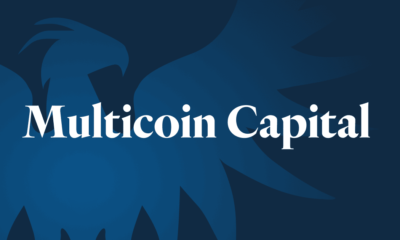

Multicoin Capital To Fund Crypto-Friendly US Candidates In Solana


Multicoin to Match Up to $1 Million in Solana Donations to Pro-Crypto Candidates


Multicoin Capital pledges up to $1m to pro-crypto Senate candidates
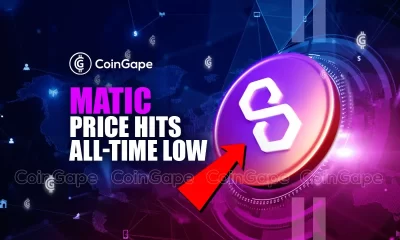

MATIC Price Crash: Reaching A Two Year Low


Multicoin Pledges up to $1M for Pro-Crypto Senate Candidates
24/7 Cryptocurrency News
Ripple and Coinbase Use Binance Win to Contest SEC Claims
Published
3 days agoon
July 2, 2024By
admin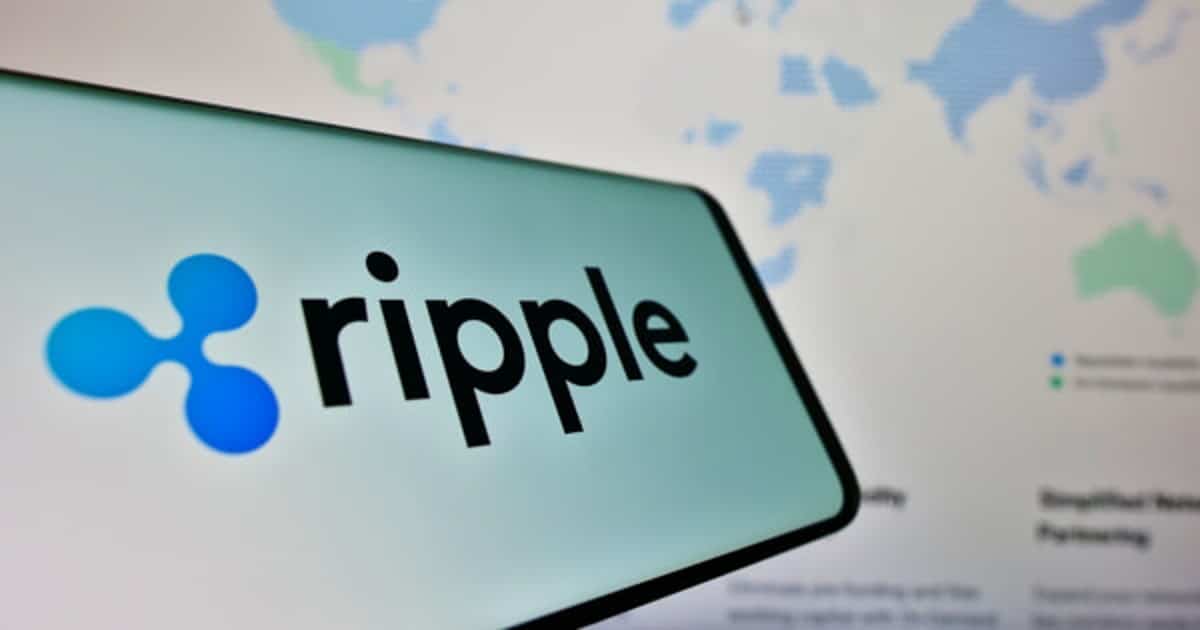
Coinbase and Ripple Labs are using Binance’s pivotal legal victory to challenge ongoing cases with the U.S. Securities and Exchange Commission (SEC). Both companies argue that the SEC’s approach needs more clarity and consistency, necessitating formal rulemaking to better define the regulatory perimeter for digital assets.
Ripple, Coinbase Cite Binance Case Against SEC
Ripple Labs and Coinbase have intensified their legal defenses by referencing a recent court order involving Binance, which achieved a partial dismissal in its SEC lawsuit. The companies argue that this precedent highlights the need for the SEC to establish clear regulations. In its latest court filing, Ripple emphasized the judge’s remark that cryptocurrency does not align seamlessly with existing securities laws, such as those established by the 1946 Howey Test. This test is crucial for determining whether a transaction qualifies as an investment contract and thus falls under securities regulation.
Coinbase has concurrently voiced concerns over the SEC’s expansive interpretation of securities laws applied to the crypto industry. The exchange asserts that this broad application could be more extensive and better defined, pushing for a definitive rulemaking process to provide legal clarity. In its appeal, Coinbase cited the recent Binance ruling to bolster its case for rulemaking, arguing that the decision underscores the inconsistencies in current regulatory applications.
Also Read: Bybit Exchange Unveils Support For ASI Alliance, Will FET Rebound?
Coinbase Demands Clarity in SEC Regulatory Battle
The SEC has engaged with various cryptocurrency platforms and assets, deeming some of their operations as securities offerings without proper registration. In the case of Ripple, the SEC’s lawsuit initiated in December 2020 alleged that Ripple raised over $1.3 billion through sales of its XRP token, which the SEC classified as an unregistered security. However, in a significant turn, Judge Analisa Torres ruled that certain “programmatic sales” of XRP did not constitute securities transactions, introducing a nuanced interpretation Ripple now seeks to leverage to challenge broader SEC claims.
Coinbase faces similar regulatory scrutiny. The SEC argues that the platform operated as an unregistered securities exchange, a claim that Coinbase refutes, urging a formal rulemaking process to clarify these regulatory boundaries. Both Coinbase and Ripple use recent judicial outcomes, notably the Binance case, to argue for a more structured and transparent regulatory framework from the SEC, stressing that the current state of affairs is inefficient and unclear.
Crypto Firms Rally Around Binance Court Decision
The partial victory for Binance in its own SEC lawsuit has become a strategic reference point for other crypto entities embroiled in legal challenges with the regulator. Despite Judge Amy Berman Jackson’s decision to proceed with most of the SEC’s claims against Binance, her dismissal of the charge regarding secondary sales of Binance Coin (BNB) as securities has been perceived as a significant legal precedent. Coinbase and Ripple have particularly highlighted this aspect of the ruling in their ongoing litigation.
Further developments are anticipated, with a scheduled conference for the SEC’s case against Binance set for July 9. Meanwhile, Coinbase and Ripple continue to press for regulatory clarity, which they argue is crucial for the industry’s stability and growth.
Also Read: Genesis Digital Is Considering Going Public Via IPO In US: Report
Maxwell is a crypto-economic analyst and Blockchain enthusiast, passionate about helping people understand the potential of decentralized technology. I write extensively on topics such as blockchain, cryptocurrency, tokens, and more for many publications. My goal is to spread knowledge about this revolutionary technology and its implications for economic freedom and social good.
The presented content may include the personal opinion of the author and is subject to market condition. Do your market research before investing in cryptocurrencies. The author or the publication does not hold any responsibility for your personal financial loss.
Source link
24/7 Cryptocurrency News
Binance Rejoices Partial Victory Against SEC As Legal Battle Continues
Published
3 days agoon
July 2, 2024By
admin
Binance, a prominent cryptocurrency exchange, is celebrating a significant legal milestone in its ongoing tussle with the U.S. Securities and Exchange Commission (SEC). Binance said that a recent court decision dismissing several key SEC claims against the exchange marks a noteworthy triumph for the broader industry.
Notably, in another update, Binance.US said that it remains vigilant and is prepared for the next phases of this legal journey.
Partial Victory Against SEC
Binance has achieved a partial victory in its ongoing legal battle with the U.S. SEC, as a federal court recently dismissed several of the agency’s major claims. This ruling is seen as a significant win for the crypto exchange and the entire cryptocurrency sector.
In a blog post shared on the X platform, Binance announced, “In a victory for the industry, a U.S. federal court dismissed several SEC claims against Binance.” The post highlighted that the court ruled crypto tokens are not securities, sales of BNB on secondary exchanges were not sufficiently alleged to be securities, and Binance’s stablecoin, BUSD, is not classified as a security.
A Closer Look Into The Report
Meanwhile, the court’s decision, as detailed in Binance’s blog, rebuffed the SEC’s assertion that digital tokens are inherently securities. Notably, Judge Amy Berman Jackson dismissed this broad claim, emphasizing the need to consider the specific circumstances surrounding each transaction rather than labeling the tokens themselves as securities.
This aspect of the ruling challenges the SEC’s strategy of enforcing regulations through broad classifications, aligning instead with the principle that regulatory oversight should be based on transaction context. Moreover, the court rejected the SEC’s argument that secondary market sales of BNB tokens should be treated as securities transactions.
This decision limits the SEC’s ability to extend its enforcement reach to secondary trading activities on crypto exchanges, thereby providing a crucial check on the agency’s regulatory power. Besides, the court found that the SEC failed to demonstrate that purchasers in secondary market sales bought BNB tokens with an expectation of profit, which is a critical component of the Howey Test used to determine whether an asset qualifies as a security.
In addition, the court dismissed the SEC’s claim that Binance’s fiat-backed stablecoin, BUSD, is sold as an investment contract. The court noted that BUSD was promoted as a stablecoin without any indication that investors anticipated its value would rise due to Binance’s efforts. This decision further reinforces the position that stablecoins do not inherently meet the criteria for securities classification.
Also Read: Bitcoin ETFs Gain Momentum With $129M Inflows, Will BTC Price Recover?
Binance Stands Firm Amid As Legal Battle Continues
Despite the favorable rulings, some of the SEC’s claims against Binance were allowed to proceed. The court did not dismiss the SEC’s allegations that direct sales of BNB tokens may constitute securities transactions, as these claims require further examination during the judicial process.
However, Binance.US expressed readiness for the ongoing legal battle, stating in a recent X post, “We were prepared for this and look forward to having this case move forward in the judicial process.” The crypto exchange highlighted its adherence to U.S. regulations and commitment to maintaining 1:1 reserves for all customer assets.
In addition, Binance.US criticized the SEC’s regulation-by-enforcement approach, which has been perceived as politically motivated overreach under the current leadership. The exchange remains confident in its position, asserting that the SEC’s case lacks factual and legal support.
Meanwhile, Binance emphasized its intention to continue serving its customers and advancing its business, underscoring its strong footing and dedication to providing access to digital assets. As the case progresses, Binance’s partial victory is a significant step in the ongoing struggle between regulatory authorities and the evolving cryptocurrency market.
Besides, in a recent development, Coinbase has filed a notice requesting an interlocutory appeal, citing Judge Jackson’s decision in the Binance BNB case. This has also attracted the market attention, with investors keeping a close watch on the shifting crypto regulation.
Also Read: Swiss Government Bank Launches XRP, ADA, SOL, AVAX & DOT Trading
Rupam, a seasoned professional with 3 years in the financial market, has honed his skills as a meticulous research analyst and insightful journalist. He finds joy in exploring the dynamic nuances of the financial landscape. Currently working as a sub-editor at Coingape, Rupam’s expertise goes beyond conventional boundaries. His contributions encompass breaking stories, delving into AI-related developments, providing real-time crypto market updates, and presenting insightful economic news. Rupam’s journey is marked by a passion for unraveling the intricacies of finance and delivering impactful stories that resonate with a diverse audience.
The presented content may include the personal opinion of the author and is subject to market condition. Do your market research before investing in cryptocurrencies. The author or the publication does not hold any responsibility for your personal financial loss.
Source link
24/7 Cryptocurrency News
Binance Warns Of Delisting These Tokens, Price Drop Ahead?
Published
4 days agoon
July 1, 2024By
admin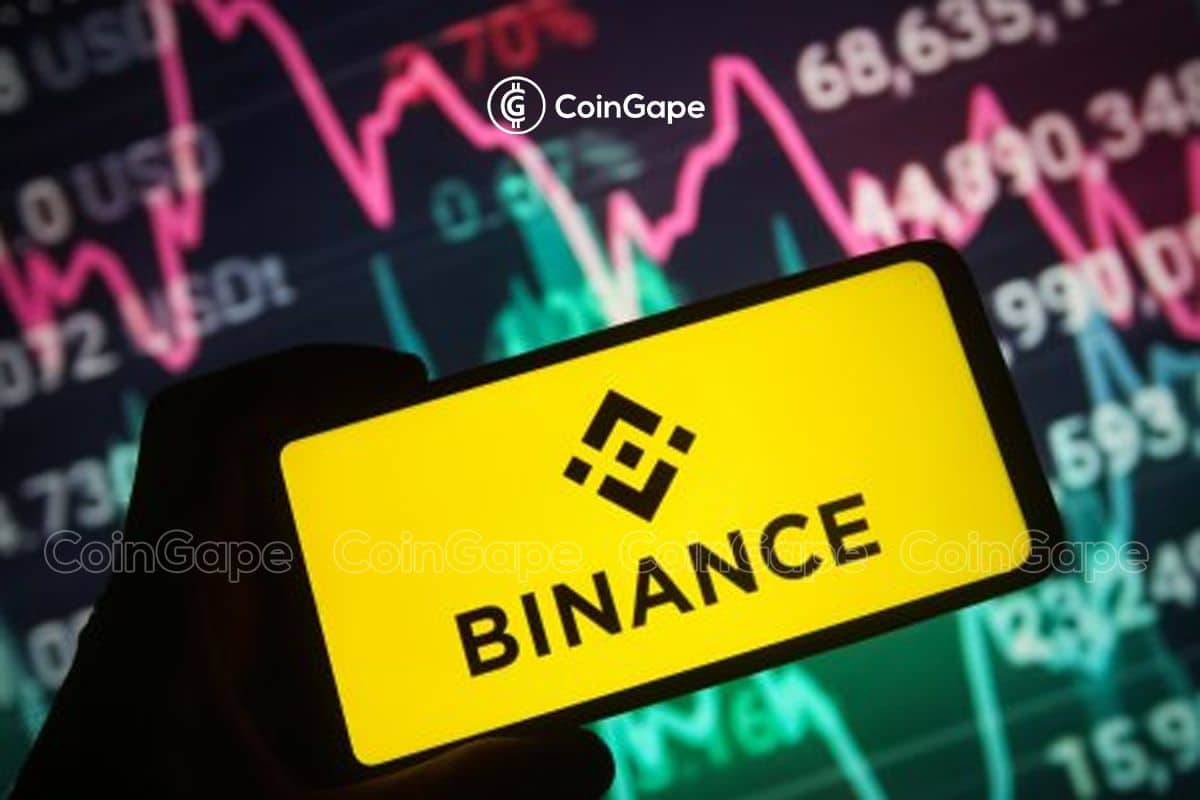
Binance has issued a new warning that has taken the crypto community by storm. The leading cryptocurrency exchange announced plans to extend its Monitoring Tag to 11 tokens, putting them at risk of future delisting.
Meanwhile, tokens affected include Balancer (BAL), and Cortex (CTXC), among others, while Enzyme (MLN) and Horizon (ZEN) will be removed from the risk list. Notably, this development could signal potential price volatility for the affected tokens.
Binance Adds Monitoring Tag To 11 Tokens
Binance’s recent announcement about its Monitoring Tag has sent ripples through the crypto market. As of July 1, the exchange will add several tokens, including Balancer (BAL), Cortex (CTXC), and Convex Finance (CVX), to its Monitoring Tag list.
Meanwhile, as per the announcement, tokens with this tag are considered high-risk and are closely monitored for volatility and compliance with Binance’s listing criteria. The tokens newly added to the Monitoring Tag list are:
Balancer (BAL), Cortex (CTXC), PowerPool (CVP), Convex Finance (CVX), Dock (DOCK), Kava Lend (HARD), IRISnet (IRIS), MovieBloc (MBL), Polkastarter (POLS), Status (SNT), Sun (SUN).
In contrast, Enzyme (MLN) and Horizon (ZEN) will be removed from the Monitoring Tag list. This shift indicates a reassessment of the risks and stability associated with these tokens. However, Binance’s decision to tag these 11 tokens highlights their increased volatility and potential for not meeting the platform’s listing criteria in the future.
Meanwhile, according to Binance, the Monitoring Tag serves as a warning that the listed tokens are under scrutiny and may face delisting if they fail to meet specific standards. These standards include the project’s commitment, development activity, trading volume, network stability, public communication, and ethical conduct.
Binance emphasizes that the Monitoring Tag aims to maintain a healthy and sustainable cryptocurrency ecosystem.
Also Read: 900M SHIB Burn Sparks Optimism Over $0.00003 Price Target Ahead
Price Drop Ahead?
The introduction of the Monitoring Tag for these tokens has significant implications for investors. Historically, announcements of this nature from major crypto exchanges like Binance tend to impact market sentiment and token performance. Positive announcements usually boost market confidence, while warnings and potential delistings can weigh on investors’ sentiment.
Meanwhile, the affected tokens could experience increased price volatility and reduced trading volume as investors respond to the perceived risk. Tokens under the Monitoring Tag are also subject to additional trading restrictions on Binance.
In addition, users must complete a quiz every 90 days to trade these tokens, ensuring they understand the associated risks. This additional layer of scrutiny aims to protect users and promote informed trading decisions.
The announcement underscores the importance of due diligence in the rapidly evolving crypto market. Investors must stay informed about the status and compliance of their holdings, particularly in light of such warnings from leading exchanges. In other words, Binance’s criteria for the Monitoring Tag emphasize the importance of project transparency, network stability, and ethical conduct.
Also Read: Elon Musk Announces JARVIS-Inspired xAI Grok 2 AI Chatbot Release Date
Rupam, a seasoned professional with 3 years in the financial market, has honed his skills as a meticulous research analyst and insightful journalist. He finds joy in exploring the dynamic nuances of the financial landscape. Currently working as a sub-editor at Coingape, Rupam’s expertise goes beyond conventional boundaries. His contributions encompass breaking stories, delving into AI-related developments, providing real-time crypto market updates, and presenting insightful economic news. Rupam’s journey is marked by a passion for unraveling the intricacies of finance and delivering impactful stories that resonate with a diverse audience.
The presented content may include the personal opinion of the author and is subject to market condition. Do your market research before investing in cryptocurrencies. The author or the publication does not hold any responsibility for your personal financial loss.
Source link

Coinbase stock to $1,700? This crypto investor thinks so

Multicoin Capital To Fund Crypto-Friendly US Candidates In Solana

Multicoin to Match Up to $1 Million in Solana Donations to Pro-Crypto Candidates

Multicoin Capital pledges up to $1m to pro-crypto Senate candidates

MATIC Price Crash: Reaching A Two Year Low

Multicoin Pledges up to $1M for Pro-Crypto Senate Candidates

Crypto heists near $1.4b in first half of 2024: TRM Labs

FTX Founder Sam Bankman-Fried’s Family Accused Of $100M Illicit Political Donation

Bitcoin Price Falls as Mt Gox Starts Repayments

20% Price Drop Follows $87 Million Spending Outrage

More than 10 years since the collapse of Mt. Gox, users confirm reimbursements

Leading Telecom Company Taiwan Mobile Gets Crypto Exchange License

Here Are Price Targets for Bitcoin, Solana, and Render, According to Analyst Jason Pizzino

Bitcoin price plunges below $55k as Mt. Gox announces repayments

Jasmy Sheds 20% Amid Bitcoin Sell-Off

Bitcoin Dropped Below 2017 All-Time-High but Could Sellers be Getting Exhausted? – Blockchain News, Opinion, TV and Jobs

What does the Coinbase Premium Gap Tell us about Investor Activity? – Blockchain News, Opinion, TV and Jobs
BNM DAO Token Airdrop

NFT Sector Keeps Developing – Number of Unique Ethereum NFT Traders Surged 276% in 2022 – Blockchain News, Opinion, TV and Jobs
A String of 200 ‘Sleeping Bitcoins’ From 2010 Worth $4.27 Million Moved on Friday
New Minting Services

Block News Media Live Stream

SEC’s Chairman Gensler Takes Aggressive Stance on Tokens – Blockchain News, Opinion, TV and Jobs

Friends or Enemies? – Blockchain News, Opinion, TV and Jobs

Enjoy frictionless crypto purchases with Apple Pay and Google Pay | by Jim | @blockchain | Jun, 2022

How Web3 can prevent Hollywood strikes

Block News Media Live Stream

Block News Media Live Stream

Block News Media Live Stream

XRP Explodes With 1,300% Surge In Trading Volume As crypto Exchanges Jump On Board
Trending
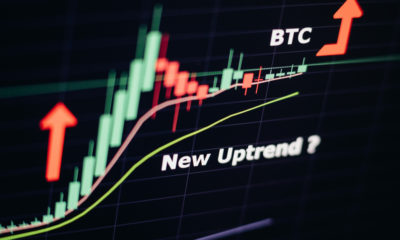
 Altcoins2 years ago
Altcoins2 years agoBitcoin Dropped Below 2017 All-Time-High but Could Sellers be Getting Exhausted? – Blockchain News, Opinion, TV and Jobs

 Binance2 years ago
Binance2 years agoWhat does the Coinbase Premium Gap Tell us about Investor Activity? – Blockchain News, Opinion, TV and Jobs
- Uncategorized3 years ago
BNM DAO Token Airdrop
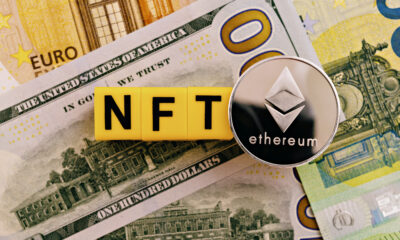
 BTC1 year ago
BTC1 year agoNFT Sector Keeps Developing – Number of Unique Ethereum NFT Traders Surged 276% in 2022 – Blockchain News, Opinion, TV and Jobs

 Bitcoin miners2 years ago
Bitcoin miners2 years agoA String of 200 ‘Sleeping Bitcoins’ From 2010 Worth $4.27 Million Moved on Friday
- Uncategorized3 years ago
New Minting Services

 Video2 years ago
Video2 years agoBlock News Media Live Stream
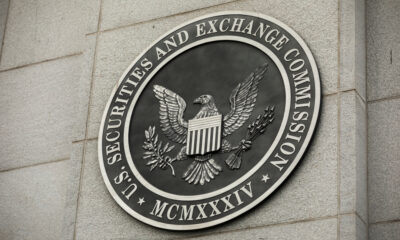
 Bitcoin1 year ago
Bitcoin1 year agoSEC’s Chairman Gensler Takes Aggressive Stance on Tokens – Blockchain News, Opinion, TV and Jobs



✓ Share: